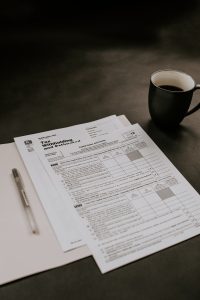Trading with banks in the forex market can be an excellent way to access liquidity, gain market insights, and reduce the risk of counterparty default. Banks are the major players in the forex market, accounting for over 50% of the daily trading volume. They offer a range of services, including market-making, currency conversion, and hedging. In this article, we will discuss how to trade with banks in forex and explore the benefits and risks of doing so.
Benefits of Trading with Banks in Forex
1. Liquidity: Banks are the primary source of liquidity in the forex market. They provide deep liquidity, allowing traders to execute large orders without affecting the market price. This makes it easier for traders to enter and exit positions at the desired price.
2. Competitive Spreads: Banks offer tight spreads, which is the difference between the bid and ask price. The tighter the spread, the less a trader needs the currency to move in their favor to make a profit. Banks can offer tight spreads because of their access to the interbank market, where they can buy and sell currencies at wholesale prices.
3. Market Insights: Banks have access to a wealth of market data and insights, including research reports, economic indicators, and news feeds. They also have teams of analysts who provide market commentary and trading recommendations. This information can help traders make informed trading decisions.
4. Risk Management: Banks offer a range of risk management tools, such as hedging, that can help traders mitigate their exposure to currency risk. For example, a trader can use a forward contract to lock in a future exchange rate, reducing the risk of adverse currency movements.
5. Security: Trading with banks offers a higher level of security compared to trading with unknown counterparties. Banks are regulated by financial authorities and have strict compliance procedures in place to prevent fraud and money laundering.
How to Trade with Banks in Forex
1. Open a Trading Account: To trade with a bank, you need to open a trading account with them. This can be done online or by visiting a branch. You will need to provide personal information and complete a risk assessment form.
2. Fund Your Account: Once your account is open, you need to fund it with capital. The amount required varies depending on the bank and the type of account you choose. You can fund your account using a bank transfer or a credit/debit card.
3. Choose a Trading Platform: Banks offer a range of trading platforms, including web-based, desktop, and mobile applications. These platforms allow you to access the forex market and execute trades in real-time.
4. Place Your Order: To place an order, you need to select the currency pair you want to trade, enter the amount you want to buy or sell, and choose the order type (market or limit). The order will be executed at the prevailing market price or the price specified in the limit order.
5. Monitor Your Trades: Once your trade is executed, you need to monitor it closely. Banks offer real-time market data and analytics, allowing you to track your position and make informed trading decisions.
Risks of Trading with Banks in Forex
1. Market Risk: The forex market is volatile, and prices can fluctuate rapidly. There is no guarantee that a trade will be profitable, and traders can lose money if the market moves against them.
2. Counterparty Risk: Trading with a bank reduces the risk of counterparty default, but it does not eliminate it entirely. Banks can still fail or become insolvent, leading to losses for traders.
3. Operational Risk: Trading with banks involves using complex trading platforms and systems. These systems can fail, leading to delays or errors in trade execution.
4. Regulatory Risk: Banks are subject to strict regulations and compliance requirements. Changes in regulations or violations of existing regulations can have a significant impact on the forex market and traders.
In Conclusion
Trading with banks in forex can be an excellent way to access liquidity, gain market insights, and reduce counterparty risk. Banks offer a range of services, including market-making, currency conversion, and hedging. However, trading with banks also involves risks such as market risk, counterparty risk, operational risk, and regulatory risk. Traders should carefully evaluate the benefits and risks of trading with banks and develop a sound trading strategy that takes these factors into account.





